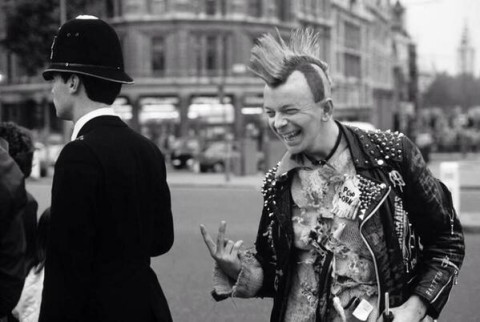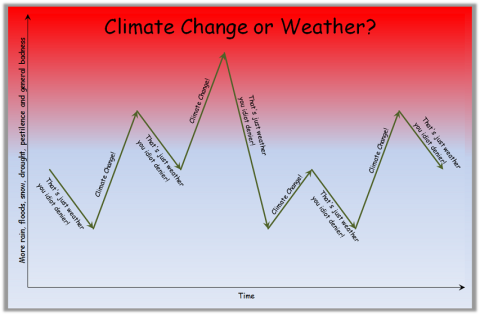The Dunning-Kruger effect is a type of cognitive bias in which people believe that they are smarter and more capable than they really are. Essentially, low ability people do not possess the skills needed to recognize their own incompetence. The combination of poor self-awareness and low cognitive ability leads them to overestimate their own capabilities.
The term lends a scientific name and explanation to a problem that many people immediately recognize — that fools are blind to their own foolishness. As Charles Darwin wrote in his book The Descent of Man, “Ignorance more frequently begets confidence than does knowledge.”
An Overview of the Dunning-Kruger Effect
This phenomenon is something you have likely experienced in real life, perhaps around the dinner table at a holiday family gathering. Throughout the course of the meal, a member of your extended family begins spouting off on a topic at length, boldly proclaiming that he is correct and that everyone else’s opinion is stupid, uninformed, and just plain wrong. It may be plainly evident to everyone in the room that this person has no idea what he is talking about, yet he prattles on, blithely oblivious to his own ignorance.The effect is named after researchers David Dunning and Justin Kruger, the two social psychologists who first described it. In their original study on this psychological phenomenon, they performed a series of four investigations and found that people who scored in the lowest percentiles on tests of grammar, humor, and logic also tended to dramatically overestimate how well they had performed. Their actual test scores placed them in the 12th percentile, yet they estimated that their performance placed them in the 62nd percentile.
Kendra Cherry, “What Is the Dunning-Kruger Effect?”, verywellmind, 2018-04-09.
February 7, 2022
QotD: The Dunning-Kruger Effect
February 6, 2022
Guadalcanal, A New Offensive – WW2 – 180 – February 5, 1943
World War Two
Published 5 Feb 2022This week sees the 10th anniversary of Hitler’s ascension to power in Germany, but while there may be celebrations and speeches in Germany, the Battle of Stalingrad comes to its end with the surrender of the German 6th Army. The Soviets are on the move all over, launching yet more winter offensives. It is the Axis who are attacking in Tunisia, and in the Solomon Islands … well, the Allies aren’t sure what the Japanese are up to.
(more…)
In Critical Race Theory, racism “only applies to powerful whites (and fellow travelers) vis-a-vis powerless blacks”
Andrew Sullivan on Caryn Elaine Johnson (stage name Whoopi Goldberg) and how her unconsidered anti-semitic worldview has been moulded and shaped by Critical Race Theory:
Whoopi Goldberg, I think it’s safe to say, is not a deep thinker, and wouldn’t claim to be. She’s also clearly not an anti-Semite. She’s a talented entertainer and merely reflects many (but not all) of the assumptions of Hollywood types — well-intentioned, rarely ruffled, cultural leftism. But that’s precisely why her comments on The View about antisemitism and the Holocaust are so interesting. They expose some aspects of “anti-whiteness” and “antiracism” as these CRT ideas have trickled down into the public consciousness, and also a deep, long-standing sense among some African-Americans that Jews in America are not usually the oppressed, but often the oppressor. These are things no one wants to explore very much — because it’s complicated, fraught, and, well, who needs the grief?
So here we go! Anti-Semitism is seen as not racism, because for Whoopi, and critical theorists, “racism” is defined as an essentially Euro-American social construction, which didn’t exist before the colonial era, and only applies to powerful whites (and fellow travelers) vis-a-vis powerless blacks. Racism is not, for them, a universal, instinctual, tribal, evolution-rooted suspicion of different-looking others that is always with us, and can happen anywhere. It is solely rather the deliberate, historically contingent oppression of the non-white by colonial “white supremacy”. However much truth this contains about American history (and it does contain a lot of it), it’s a terribly parochial view that misses a huge amount in the world, throughout history, and in America.
As Adam Serwer explains, this parochial view of racism also “renders the anti-Semitism that led to the Holocaust illegible”. Well, yeah. Any theory of racism that cannot explain the Holocaust is not just illegible, it is untenable. It would mean that the conflicts between, say, Tutsis and Hutus, Germans and Slavs, Jews and Arabs, Burmese and Rohingya, or Han and Uighur, are not instances of racism — because they are not examples of “white targeting non-white”. It wouldn’t include the Bible’s description of the Jewish people’s own enslavement by the Pharaohs, for goodness’ sake. And that’s a problem for any concept of racism — let alone one that now controls much of American culture.
Here, for example, is the Anti-Defamation League’s woke definition of “racism” the day Whoopi made her remarks (a definition swiftly changed after the contretemps): “The marginalization and/or oppression of people of color based on a socially constructed racial hierarchy that privileges white people.” But since Jews are deemed “white people”, by this definition, how could the Nazis have been racist? The same would also have to be said, would it not, about Louis Farrakhan today? He may sound like a Nazi about Jews, but his skin color means he cannot be racist.
Whoopi’s gaffe helps explain why the mainstream media now describes young black men assaulting Jews and Asians as expressing … “white supremacy”! This is what the WaPo op-ed page, referring to growing Latino support for Trump, called “multiracial whiteness”. If they are non-white and bigots, they miraculously become white. And notice how bigotry is exclusively ascribed to a single “race”: whites. Without whites, we’d have no racism at all.
This is not the only way critical theorists distinguish anti-Semitism from racism. “Whiteness”, disproportionately including Jewishness, is wrapped up in systems of oppression, especially capitalism, and defined by control of money and power. Robin DiAngelo argues in White Fragility that “white supremacy” exists in mainstream America by noting how many “white people” there were in various positions of power in 2017:
Ten richest Americans: 100 percent white (seven of whom are among the ten richest in the world). US Congress: 90 percent white. US governors: 96 percent white. Top military advisers: 100 percent white. President and vice president: 100 percent white. US House Freedom Caucus: 99 percent white. Current US presidential cabinet: 91 percent white. People who decide which TV shows we see: 93 percent white. People who decide which books we read: 90 percent white. People who decide which news is covered: 85 percent white. People who decide which music is produced: 95 percent white. People who directed the one hundred top-grossing films of all time, worldwide: 95 percent white.
She goes on to emphasize Hollywood’s influence, in particular. Now just put the word “Jewish” where the word “white” is, and her list reads a bit differently, doesn’t it: “People who decide which books we read: 90 percent Jewish. People who decide which news is covered: 85 percent Jewish.” It’s an assertion that one race hoards power, controls the media, and directs the culture, a race so powerful it permeates everything. Sound a little familiar?
Quebec Papal Zouave’s Ceremonial Gewehr 71/84
Forgotten Weapons
Published 4 Oct 2021http://www.patreon.com/ForgottenWeapons
https://www.floatplane.com/channel/Fo…
Cool Forgotten Weapons merch! http://shop.forgottenweapons.com
Here’s a rifle with an interesting twisting history …
This began life as a German military Gewehr 71/84, made in 1888. It was issued to a unit, but eventually replaced by the Gewehr 1888. It was sold to the Francis Bannerman company at some point around 1900, as part of a big batch of surplus weapons (Bannerman was a massive international dealer in arms and military equipment). Moving ahead a few years, World War One breaks out and prompts the organization of a couple Canadian “Home Guard” units. The Montreal Home Guard has some money, and buys a batch of Savage Model 99 lever action rifles (in .303 Savage, interestingly). The Quebec Home Guard isn’t quite so well-heeled, so they go to Bannerman to see what they can afford. Bannerman sells them a batch of Gewehr 71/84 tube-magazine repeating rifles, in the same configuration as when they were sold off by the German military.
Incidentally, I believe these become the only Mauser rifles formally purchased and issued by the Canadian government, when they are acquired by the Home Guard. At any rate, after the war ends, a subset of those old rifles are given to the Quebec Papal Zouaves, a ceremonial vestige of the Quebecois military volunteers who went to Italy in the 1860s to help defend the Papacy during Italian unification. By this time, the Zouaves are basically just acting as guards in parades, and they crudely cut down the 71/84s, removed their magazines, and fit them with cut-down British Snider bayonets for use as single-shot, blank-firing arms.
Quite the journey, right? And also a reminder that sometimes what looks like sporterized junk is actually something with distinct historical provenance …
Many thanks to Mike Carrick of Arms Heritage Magazine for providing me access to film this example!
Contact:
Forgotten Weapons
6281 N. Oracle 36270
Tucson, AZ 85740
QotD: Marcus Tullius Cicero
Marcus Tullius Cicero was one of the most gifted and successful politicians of his day. Unlike nearly all of his peers in the Roman Senate, his family had not been in Roman politics for generations on generations, but rather was new to it. Cicero’s family was a wealthy one, but hailed from the town of Arpinum, about 60 miles from Rome, making Cicero an outsider to elite Roman politics. He made his name as a legal advocate, rather than (in more typical Roman fashion) as a military man. He was the first of his family to enter the Roman Senate (making him a novus homo or “new man”) and was the first such new man to rise all the way to the consulship (the highest Roman office) in thirty years, which should give some sense of the magnitude of that achievement. Moreover, Cicero had managed to get elected in the first year he was eligible, which would have been a banner achievement even for a member of Rome’s traditional upper-class. During that consulship (63 B.C.), he further distinguished himself by foiling a planned coup centered around the influential figure of Catiline (L. Sergius Catilina).
Cicero was a key politician in the Late Republic, but it was his misfortune that his life was spent in an era where words meant less than weapons. He sided with Pompey against Caesar, but was granted clemency after Pompey’s defeat. He was not involved in Caesar’s assassination – he was still too much an outsider for some of the stuck-up Roman elitists who made up the conspiracy (though he correctly pointed out at the time that leaving Antony alive would be a fatal mistake). In the aftermath of the assassination, he identified (correctly) Antony as the key threat to the Republic and worked to discredit him politically in a devastating series of speeches named the Philippics (in honor of a similar set of speeches made by the Athenian Demosthenes against Philip II of Macedon, father of Alexander). Cicero’s political assault on Antony succeeded – his reputation was ruined and his popularity in Rome never recovered – but it cost Cicero his life when Antony, in league with Octavian, moved into the capital and had Cicero murdered. Cicero’s literary legacy survived him, however, in part because it was useful for Augustus’ own political ends (e.g. Plut. Cic. 49.5-6).
Cicero’s position as the most eloquent orator of the Latin language – and probably its best prose stylist – is largely uncontested. It was his speaking skills – honed in the courts – that made him so politically successful. He was also a prolific writer and a tremendous amount of his writings survive, including both legal and political speeches, private letters, handbooks on oratory, and a set of philosophical works. As anyone who has read Cicero can tell you, he also has a deserved reputation for pride and self-aggrandizement. While many of Cicero’s contemporaries and readers down to the modern era have been impressed by Cicero’s thinking and eloquence, I feel confident in asserting no one – alive or dead – will ever be more impressed by Cicero than Cicero was impressed by himself.
Bret Devereaux, “Collections: A Trip Through Cicero (Natural Law)”, A Collection of Unmitigated Pedantry, 2019-12-12.
February 5, 2022
Why great NFL players rarely make good coaches
In his (mostly) weekly mailbag post, Severian at Founding Questions considers the latest NFL scandal and some of the insane requirements to be a really great NFL quarterback and how few can both play and coach at that high level. First, the Romney Rule scandal:
I see that some black coach has sued the NFL for racial discrimination, and I must say I hope he takes them for every cent they’ve got. From the very little I’ve seen, his case is airtight, because of the NFL’s astounding stupidity. For those who don’t know, the NFL has been using what’s called the “Rooney Rule” for at least two decades now. This states that whenever a head coaching job comes up, the team must interview at least one (and I think two are mandatory now) black candidate.
Since there’s a serious dearth of black coaches at all levels of organized football (we’ll psircle back to that in a minute), this means that the same three or four guys go through the same pro forma interviews every time. As far as I understand it, then (which is not very, admittedly), this particular coach was actually told to his face that this interview with whatever team was just pro forma compliance with the Rooney Rule; we’ve already got our guy, so just fly out here, we’ll buy you lunch, have a nice chat, and put you back on the plane lickety split.
That’s one part of his airtight case. The other is that whatever team he interviewed with also has a Diversity and Inclusion Officer — because of course they do — and the DIE Officer is on record as saying all kinds of typical sanctimonious virtue-signaling shit, e.g. “We are a systemically racist organization and have to do better,” blah blah blah. Put those together, and what else can you conclude except that this coach got screwed out of a job because of explicit racial animus?
But as to why there are so few black NFL coaches, part of it is due to the way young quarterbacks are trained — he discussed this in detail here — which very frequently diverts talented young black quarterbacks away from learning the skillset they would need to make it in the NFL. The other thing is that the skills you need to be a good coach don’t often appear in a person who has the physical ability to be a good player:
If you haven’t met any high-caliber pro athletes, think of professors. The third-rate knockoff cow college I went to had a pretty big league chemist on staff; if he hadn’t won the Nobel he was at least in the conversation, something like that. This guy was a terrible teacher, because he just couldn’t grok that other people couldn’t follow him. Your brain couldn’t fire fast enough to keep up with his, and he couldn’t slow his down enough to let you catch up. The best chemistry teacher was still pretty smart — no dummies in Chem PhD programs, at least not back then — but because he was nowhere near the top guy’s level, he was so much better at explaining the nuts and bolts.
You could ask the low-end guy “What do I need to do to get better at chemistry?” and he could give you some solid, practical advice (I know, because with his help I squeaked out a C-). You asked that of the high end guy, and he’d reply “Be smarter”. (Not really, he was actually pretty cool, personally, but nonetheless that’s really all he could say).
Sports works the same way. While I was there, this same college also hired a former NBA player to coach basketball. Not a Hall of Famer, but a Hall of the Pretty Good-er; if you know basketball from the late 70s, you’ve heard of him. They thought having this guy as a coach would boost recruiting and ticket sales (he was a local notable, too), and it did … for a time, but under his stewardship the team got much worse, and for the same reason the Nobel-candidate chem wiz was the worst teacher. Billy Bigshot would tell his guys “Just go out there and do this and that” … but his guys couldn’t do this and that. Billy could, which is why he was a very good player at the highest professional level; but he couldn’t grok that not everyone could do the same genetic freak shit on the court he could, because they weren’t genetic freaks like him.
Psircling back to the NFL, if you want a race-neutral entry point for discussing this stuff, there you go. Good players are generally terrible coaches, because pretty much by definition good players are genetic freaks who have no idea how they do the things they do; they just do them. Good coaches, on the other hand, tend to be nerdlingers with people skills … another fairly rare combo, it must be said, but nowhere near as rare as a 6’4″ chess master with a big arm. If pro teams really wanted to start thinking outside the box, they’d start recruiting potential coaching candidates at video game tournaments … or straight from high school, where guys have to do much more with much, much less.
City Minutes: The Roman Empire
Overly Sarcastic Productions
Published 4 Feb 2022The funny thing about Empire is that ~*Rome*~ includes far more than just the City of Rome. Spread out across every corner of the Mediterranean — and then some — Roman Civilization was always adapting to local circumstances and changing over time. Today we’ll look at 5 cities that show the diversity of just how much “Rome” could really mean in the days of the empire.
The Great Cities In History by John Julius Norwich, “A Wonder of the World – Ephesus” from The Great Tours: Greece and Turkey, from Athens to Istanbul by John R. Hale, “Ephesus”, “Leptis Magna”, “Roman Britain”, “Pompeii” from World History Encyclopedia https://www.worldhistory.org/ephesos/, https://www.worldhistory.org/Lepcis_Magna, https://www.worldhistory.org/Roman_Britain, https://www.worldhistory.org/pompeii/. “Ephesus”, “Leptis Magna” “London”, “Pompeii” from Britannica https://www.britannica.com/place/Ephesus, https://www.britannica.com/place/Leptis-Magna, https://www.britannica.com/place/Lond…, https://www.britannica.com/place/Pompeii. I also have a degree in Classical Studies.
Chapters:
0:00 — Rome
0:58 — Ephesus
2:00 — Leptis Magna
3:03 — Londinium
4:12 — Pompeii
5:17 — ConclusionOur content is intended for teenage audiences and up.
PATREON: https://www.Patreon.com/OSP
PODCAST: https://overlysarcasticpodcast.transi…
DISCORD: https://discord.gg/osp
MERCH LINKS: http://rdbl.co/osp
OUR WEBSITE: https://www.OverlySarcasticProductions.com
Find us on Twitter https://www.Twitter.com/OSPYouTube
Find us on Reddit https://www.Reddit.com/r/OSP/
A new biography of Nigel Farage
For a man who’s never been elected to Parliament, Nigel Farage has been a major mover-and-shaker in British politics. In the Literary Review, Steve Richards reviews One Party After Another: The Disruptive Life of Nigel Farage by Michael Crick:
Most political figures come and go. Nigel Farage, in contrast, seems always to be around, close to the centre of the political stage. Sometimes he is leading a political party. Occasionally he is setting up a new one. Between such roles he is on television. Currently, the former leader of UKIP and the Brexit Party hosts a nightly show on GB News.
The consequences of Farage’s ubiquity have been seismic, reshaping the UK and the wider political landscape. He sought a referendum on Britain’s membership of the EU and then a hard Brexit, and ultimately got everything he wanted. The Conservative Party’s embrace of a form of English nationalism was partly a response to the threat that Farage posed. The near-silence of the Labour leader, Keir Starmer, on the subject of Brexit is a form of vindication for him. Starmer knows that Brexit is having calamitous consequences but does not dare to say so. No wonder Michael Crick concludes that “it’s hard to think of any other politician in the last 150 years who has had so much impact on British history without being a senior member of one of the major parties at the time”.
Among Crick’s admirable passions is his interest in those individuals or forces that have shaped the major political parties from outside the mainstream. He wrote an important book on Militant, the left-wing group that in the 1980s sought to infiltrate the Labour Party and for a time made life hellish for Michael Foot and Neil Kinnock, the two party leaders during that stormy decade. His biography of Jeffrey Archer, the Conservative MP who became a bestselling author and then a convicted prisoner, was revelatory. Now he has set his sights on Farage, who has never been an MP and yet has been such a prominent figure in recent years.
As Crick always does with his subjects, he has researched meticulously every twist and turn in Farage’s life. He regrets that his investigations were constrained by the pandemic. He need not worry too much. His diligence has enabled him seemingly to have unearthed every internal dispute in UKIP and the Brexit Party, along with the eccentric figures who lined up on different sides in them. The characters that emerge would fit neatly into a Dickens novel. One of the most unsavoury right-wingers to feature in the book is now an avid supporter of the Green Party, lives in Germany and is passionately opposed to Brexit – a novelistic metamorphosis. We are also reintroduced to Farage’s old friend Godfrey Bloom, a UKIP MEP and economics spokesman, who in 2013 famously hit Crick with a party conference brochure as the journalist pursued him down the street after he had made characteristically indiscreet and outrageous remarks in a speech to UKIP members.
This book is full of fights, usually between party members. We see Farage repeatedly falling out with other potential leaders. More prominent members who cannot hide their real views in public have to be admonished. Some flirt with the BNP. Even during the triumphant 2016 referendum campaign, there were two pro-Brexit camps, one led by Farage and the other by Dominic Cummings. Farage and Cummings loathe each other and their campaign groups fought bitterly for pre-eminence. This is the most striking theme of the book. UKIP and the Brexit Party, which Farage set up in 2019 to campaign for a hard Brexit, were utterly dysfunctional most of the time. They make the UK’s main political parties, all going through various existential crises at the moment, seem models of smooth, sophisticated professionalism. The amateurism extended well beyond the eccentric characters near or close to the top. Neither party offered coherent policy programmes beyond opposition to the UK’s membership of the EU.
H/T to Colby Cosh for the link.
Centurion – Tiger Tank’s Nemesis
Mark Felton Productions
Published 22 Oct 2020The Centurion, the famous Cold War tank, was actually developed to take on the dreaded German Tiger in WW2. Find out whether they ever met on the battlefield in 1945.
Dr. Mark Felton is a well-known British historian, the author of 22 non-fiction books, including bestsellers Zero Night and Castle of the Eagles, both currently being developed into movies in Hollywood. In addition to writing, Mark also appears regularly in television documentaries around the world, including on The History Channel, Netflix, National Geographic, Quest, American Heroes Channel and RMC Decouverte. His books have formed the background to several TV and radio documentaries. More information about Mark can be found at: https://en.wikipedia.org/wiki/Mark_Fe…
Visit my audio book channel ‘War Stories with Mark Felton’: https://youtu.be/xszsAzbHcPE
Help support my channel:
https://www.paypal.me/markfeltonprodu…
https://www.patreon.com/markfeltonpro…Disclaimer: All opinions and comments expressed in the ‘Comments’ section do not reflect the opinions of Mark Felton Productions. All opinions and comments should contribute to the dialogue. Mark Felton Productions does not condone written attacks, insults, racism, sexism, extremism, violence or otherwise questionable comments or material in the ‘Comments’ section, and reserves the right to delete any comment violating this rule or to block any poster from the channel.
Credits: David Holt; Simon Q.; Tony Hisgett; Danie van der Merwe; Oliver Gottlob.
Thumbnail: The Tank Museum
QotD: I get a faint sense that he’s not a fan …
… I was up all night, between here and watching the telly. It was a wee small hours, musical interlude, on Channel Four, firstly a film of Liam Gallagher’s new ensemble, Beardy Eye, playing their new album in the Abbey Road studios. Liam is the truly neanderthal, younger brother from Oasis, a thick, grunting Manchester-Irish fuckpig, dumb as shit, you can hear the wind whistling between his ears, if he was any more stupid he’d have to be watered twice a week; makes Manchester United’s Wayne Potato look like a full Mensa meeting, does Liam. Nothing wrong with stupid. There’s lots of people like Liam, their oil just doesn’t reach the dipstick. He’s not as stupid as he looks, mind, because he looks like he was beaten with the Ugly stick and then ate it, ugly as fucking sin, is Liam Gallagher, ugly as a hatfull of arseholes; if your dog had a face like Liam’s, you’d shave its arse and teach it to walk backwards. Stupid, ugly and nasty, that’s Liam Gallagher, a truculent moron, charmless, graceless and entirely without discernible musical talent, a sign, in fact, of Ruin’s corrosion.
His new band, anyway, consists of four competent but unimaginative player-songwriters, and him. And the album’s a turgid lukewarm brew of reworked Oasis numbers which Liam’s brother Noel, every bit as ugly, every bit as unpleasant but a fraction less stupid would have rejected; the band switch between a dazzling selection of Rickenbaker and Gretsch guitars — funny, isn’t it, how a fiddler will manage with one Stradivarius, Robert Johnson played only a two-dollar guitar, Rory Gallagher the same battered old Strat and yet the current lot switch from one expensive instrument to another between songs, maybe even during songs, the rock’n’roll of Consumerism — to produce the same sounds, the same chords, the same figures over and over, to sing the same harmonies, the same shouty, angry, miserable, hateful, retarded adolescent drivel, tripe, every fucking bar of it; Liam, stooped inside his ugliness, howling and frothing his whining, meaningless doggerel; forty year old men, there oughta be a law against them doing this shit. Liam, rock hero caricature posturing, grunts at one point that this is whaditsallabout knoworramean, fucking keeping on playing and touring, selling the albums, to the kids, otherwise I’d end up working in fucking McDonalds, knoworramean; setting his sights way too high, there, overestimating his personal qualities, I mean, Billy Bragg might get a job in McD’s, on the mop bucket, Paul Weller, maybe, but they wouldn’t let Gallagher within a hundred yards.
Ishmael, “The Sunday Ishmael 31/10/2021”, Call Me Ishmael, 2021-10-31.
February 4, 2022
Canada’s delusionary approach to the question of providing military support to Ukraine
In The Line, “Tommy Conway” explains why it makes no sense to take Canadian government and military leaders’ talking points on the situation in Ukraine seriously:
Canada has not done these things. We say we’re not sending weapons because “diplomacy is the solution”, but the reality is we can’t send anything meaningful. Any small arms we send would likely be on a NATO standard, and thus not very useful for Ukrainian forces who use Soviet calibers. As for the stuff the Kyiv really needs — the anti-tank and anti-air systems that the Americans, British, and Balts are sending — we are not sending them because we barely have any. Our anti-tank capability is mostly theoretical. Because we have not replaced older, worn-out systems, we have less anti-tank capability now than we did during the “decade of darkness” in the 1990s. We’ve known for decades that we need to equip the infantry with highly-portable, effective guided missiles like the U.S. Javelin, but we haven’t bothered, save for a few Spike missile systems for our special forces. Maybe our regular ground forces will get something similar by 2033. We have literally no air defence capability besides shooting machine guns in the air and hoping for the best, so we have no air defence missiles to send. Besides the fact that we can’t support Ukraine with weapons, we can’t really support NATO allies with reinforcements either because our units, on a modern battlefield, would lack the ability to defend themselves. We might be welcome as a political gesture, but we might also just be in the way.
Our deficiencies go deeper than weapons. CAF is well below strength. But instead of doubling down on core capabilities, CAF leadership insists on putting more people and resources into newer, faddish capabilities like cyber and information warfare, when we already have an entire government agency that does cyber. Our brigades — the core of the Canadian Army’s fighting power, are under-strength, and the army’s recent “Force 2025” concept concedes that the army should hope to field small, combat team elements as the core of any near-future operational deployment. To put this in perspective, a combat team makes up part of a battlegroup, which makes up part of a brigade. The Russians have 50 battlegroup equivalents on the Ukrainian border, and roughly 16 in the Kaliningrad exclave bordering Poland and Lithuania.
A Canadian deployment of a few combat teams would be too small a force even to help manage a large number of refugees in an active combat zone. We might be able to scrape together a battlegroup, but it would be vulnerable to air and tanks — in other words, not very useful. Once it was destroyed, that would probably be the majority of the Canadian Army’s combat power gone, with no hope of reconstituting it.
It would be one thing if the army sold this reorganization as a necessary evil in lean times, but this sort of hollowing-out is instead presented as allowing the army to “remain[…] ready to operate not only in the land domain, but pan-domain in a joint environment beyond simply reinforcing its existing capabilities.” Strip away the jargon, and it should be obvious that this phrasing is the victim of too much powerpoint and too little thinking. Junior NCOs and junior officers alike are instructed to build a “priority of work” into their plans for even small, simple operations. Given that we don’t have realistic “current capabilities”, reinforcing our shell of an army should obviously be on the top of the list before we commit resources to new things. At the very least we should be open and honest about what we can and can’t do.
If you ask most talking heads in the Canadian “defence space”, battlegroups that can’t battle aren’t a big deal. The idea that modern war will be won on social media or through “integration” and digital technologies, thus making the old ground-pounders outdated, is a common staple among civilian defence academics. It’s also present in the government’s defence policy, which goes on at length about space and cyberwar and climate change and “ungoverned spaces”, but little about building a realistic fighting force. This hopeful language about an army that can operate in a chaotic world without much messy stuff like hurting people or breaking things is obviously nonsense, but novelty and wishful thinking are pretty standard fare for academics and politicians. It’s much more concerning to see supposedly practical military people hold reality in such low regard.
The officer class’ shoddy thinking comes from decades of misguided pseudo-intellectual development. After the Somalia Affair in the 1990s, the CAF turned to liberal arts education as a way to buy credibility. There was nothing wrong with the idea of intellectual broadening in theory — the officer corps obviously needed reform. But the reforms were rushed and packaged, so they replaced one set of intellectual deficiencies with another.
The Origins of the SAS – WW2 Special Episode
World War Two
Published 3 Feb 2022“Who dares, wins”. Nowadays the British SAS — Special Air Service — is considered one of the best special forces in the world. Yet its wartime origins are shrouded in mysteries and legends. From the first ideas of top-secret “special raiding squadrons”, to the first raids in North Africa accompanying the Long Range Desert Group, the SAS’s beginnings resemble one big experiment. An experiment from which a truly legendary special service would emerge.
(more…)
“In particular, he noted that as you stretch out the models across time ‘the errors increase radically'”
At the Daily Sceptic, Chris Morrison notes that Canadians have become omnipresent on Joe Rogan’s podcast recently:
It’s been all Canada on Joe Rogan’s popular Spotify podcast of late. First, crinkly rockers Neil and Joni threw their guitars out of the pram when Rogan dared to broadcast a number of different opinions on Covid and vaccines. Then fellow Canadian Dr. Jordan Peterson said climate models compounded their errors, just like interest. Green activists and zealots (often known in the climate change business as “scientists”) clutched their responsibly sourced pearls and whined, “Lawks a-mercy, it’s outrageous!” and “Banning’s too good for them!”. The septuagenarian songsters briefly found themselves out of the headlines as the mainstream media rushed to quell a growing sceptical climate debate and rubbish a troublesome competitor.
Dr. Peterson suggested that the climate was too complex to be modelled. Such notions were said to be a “word salad of nonsense”, reported a distraught Guardian. Dr. Sarah Perkins-Kirkpatrick of the University of Canberra added Peterson had “no frickin’ idea”. Professor Michal Mann of Penn State University said Peterson’s comments – and Rogan’s “facilitation” of them – was an “almost comedic type of nihilism” that would be funny if it wasn’t so dangerous.
This of course is the same Michael Mann who produced the infamous temperature hockey stick that was at the centre of the 2010 Climategate scandal. The graph was used for a time in IPCC reports and showed a 1,000 year straight temperature line followed by a recent dramatic rise. This startling image was helped by the mysterious disappearance of the medieval warming period and subsequent little ice age. Discussion about the graph led to Mann pursuing a U.S. libel suit against the broadcaster and journalist Mark Steyn. In court filings, Mann argued that it was one thing to engage in discussion about debatable topics, but it was quite another to “attempt to discredit consistently validated scientific research through the professional and personal defamation of a Nobel Prize recipient”. He is not himself a Nobel Prize recipient, but perhaps he was referring to someone else.
Independent minded communicators like Joe Rogan and take-no-prisoner intellectuals such as Dr. Peterson command a worldwide audience and they are difficult to cancel. The battle between Neil Young and Joni Mitchell and Joe Rogan, sitting on a $100m Spotify contract, had only one free speech winner – at least for the moment. Meanwhile, the Guardian‘s default position when faced with something unsettling like the “settled” science of anthropogenic climate change is to declare it will not “lend” its credibility to its critics by engaging in debate. That was obviously not possible with Peterson’s remarks being plastered all over social media, although it could be argued that the Guardian reporting the vulgar abuse users posted in response is not much of a substitute for the usual lofty disdain.
Dr. Peterson attacked climate models on a number of fronts. In particular, he noted that as you stretch out the models across time “the errors increase radically”. In its way, this refers to the biggest problem that lies at the heart of the 40-year track record of climate model failures. To make a prediction, climate models are fed a guess of the increase in the global mean surface temperature that follows a doubling of atmospheric CO2. Nobody actually knows what this figure is – the science for this crucial piece of the jigsaw is missing, unsettled you may say. The estimates run from 1°C to as high as 6°C and of course the higher the estimate, the hotter the forecasts run.
As they don’t say in the climate and Covid modelling business – Garbage In, Garbage Out.
Proposed Advanced Variants of the Avro Canada CF-100 Canuck
Polyus Studios
Published 20 Nov 2018Don’t forget to like the video and subscribe to my channel!
Support me on Patreon – https://www.patreon.com/polyusstudiosThis video covers some of the advanced variants that were proposed for to enhance the capabilities of the CF-100 Canuck. It covers both weapon systems and a few airframe redesigns.
0:00 Introduction
0:55 Velvet Glove and Sparrow 2 missiles
1:36 Falcon and Sidewinder missiles
2:22 Eagle missile
2:53 Genie nuclear rocket
3:18 Engine testing
3:50 Canuck Mk10
4:40 VTOL Canuck
6:03 ConclusionMusic:
Denmark – Portland Cello Project#CF100 #CanadianAerospace #PolyusStudios













